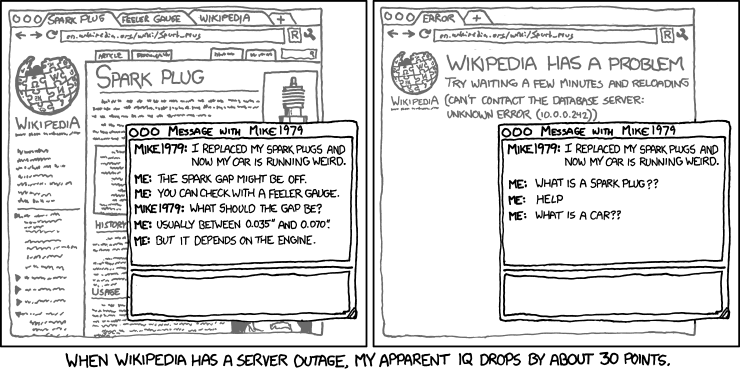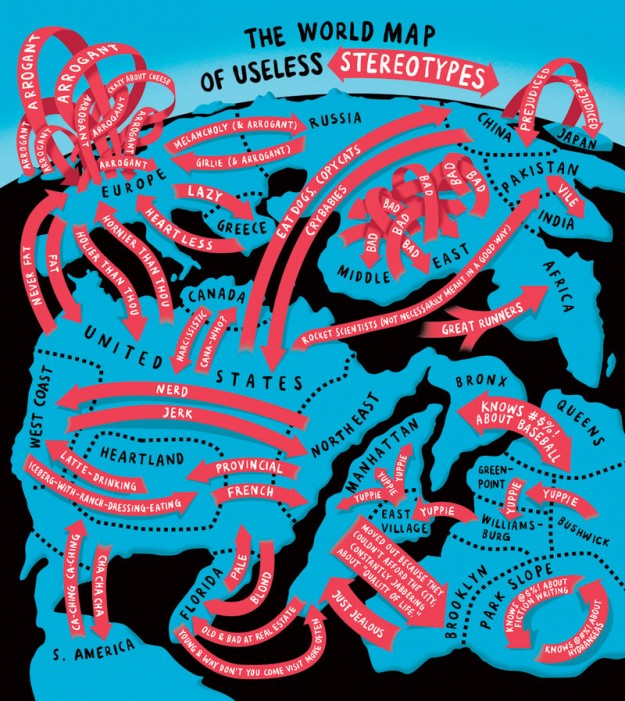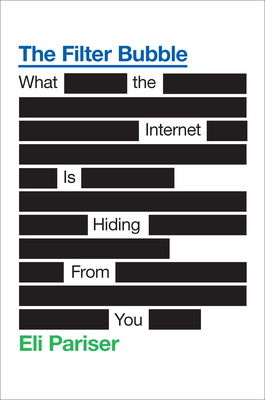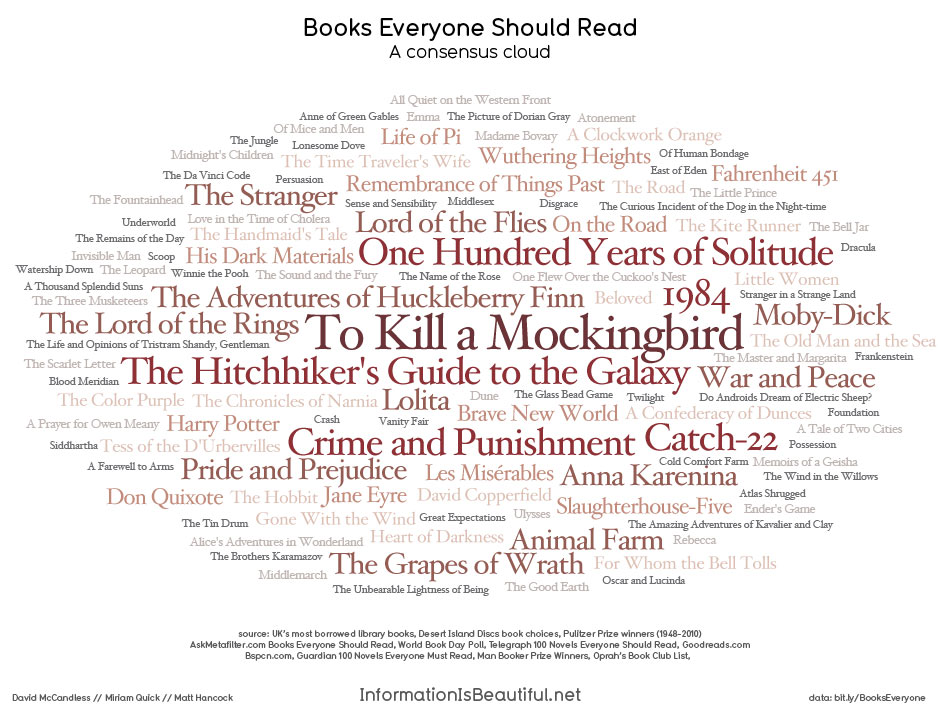Sunday, July 24, 2011
Friday, July 22, 2011
Good old days
Some day, public libraries will be regarded with that far greater reverence we reserve for things we once had. Alan Bennett gets us off to a wonderful start , and has a nice parting shot:
It’s hard not to think that like other Tory policies privatising the libraries has been lying dormant for 15 years, just waiting for a convenient crisis to smuggle it through. Libraries are, after all, as another think tank clown opined a few weeks ago, ‘a valuable retail outlet’.
It’s hard not to think that like other Tory policies privatising the libraries has been lying dormant for 15 years, just waiting for a convenient crisis to smuggle it through. Libraries are, after all, as another think tank clown opined a few weeks ago, ‘a valuable retail outlet’.
Sunday, July 17, 2011
Books as fetish objects
Sad times for bibliophiles; the book, writes James Gleick, "is like the coffin at a funeral. It deserves to be honored, but the soul has moved on."
Friday, July 15, 2011
Death of the expert, or birth of the expert?
Sven Birkerts has a bone to pick with Maria Bustillos' article Wikipedia and the Death of the Expert. Sven has been windmill-tilting indefatigably ever since the Gutenberg Elegies (1994!), and you can't help admire the poor sod - not only for his pluck, but also for his beautiful and perceptive writing. And for providing such inspiring examples of what both he and I cherish; non-instrumental thinking and writing. Bustillos responds here, but methinks "Wikipedia and the birth of the expert" would have been a better title for her article....
Introducing the Mechanic Muse
(excerpt) In this week’s issue, the Book Review inaugurates a new column, The Mechanic Muse, that will examine different aspects of this techno-literary complex. This week, Kathryn Schulz takes a virtual trip to the Stanford Literary Lab, where literary scholars are mutating into computer scientists, and vice versa. Can a computer recognize a literary genre or help us see the plot of “Hamlet” anew? Should it? Read the column to decide for yourself.
Wednesday, July 13, 2011
Friday, July 1, 2011
Tuesday, June 28, 2011
Wednesday, June 22, 2011
Thursday, June 16, 2011
Monday, June 6, 2011
20 facts about US inequality
20 Facts About US Inequality That Everyone Should Know (With An Update On The Uber-Wealthy And Global Wealth Inequality)
From zerohedge.com, infographics from many different sources about many different kinds of inequality in the US - for example,
From zerohedge.com, infographics from many different sources about many different kinds of inequality in the US - for example,
Thursday, May 19, 2011
Wednesday, May 18, 2011
The Stockholm Syndrome Theory of Long Novels
A long but captivating article by Mark OConnnell about the "no pain no gain" reading experience.
Friday, May 13, 2011
Narrowing your horizons
The internet's potential for personalizing your information and network of contacts, or, to put it another way, narrowing your horizons, is vast. Surfers will do this well enough on their own by simply following their preferences, but when technology aids and abets by filtering information on the basis of your browsing history...that way lies trouble, according to Eli Pariser's The Filter Bubble
Tuesday, May 3, 2011
Sunday, May 1, 2011
Libraries have nothing at all to do with silence
Nice piece by Bella Bathurst in the Guaradian on the "Secret life of libraries"
excerpts:
"In London during the Second World War, some authorities established small collections of books in air-raid shelters. The unused Tube station at Bethnal Green had a library of 4,000 volumes and a nightly clientele of 6,000 people."
"The libraries' most powerful asset is the conversation they provide – between books and readers, between children and parents, between individuals and the collective world. Take them away and those voices turn inwards or vanish. Turns out that libraries have nothing at all to do with silence."
excerpts:
"In London during the Second World War, some authorities established small collections of books in air-raid shelters. The unused Tube station at Bethnal Green had a library of 4,000 volumes and a nightly clientele of 6,000 people."
"The libraries' most powerful asset is the conversation they provide – between books and readers, between children and parents, between individuals and the collective world. Take them away and those voices turn inwards or vanish. Turns out that libraries have nothing at all to do with silence."
Saturday, April 30, 2011
This is fun
For all who find that coming up with new passwords brings mental functions to an immediate halt and is uncannily, perversely difficult (kind of like remembering jokes), this article about multi-word passwords is a relief.
Wednesday, April 27, 2011
Quaint libraries
CNET editor Brian Cooley has rattled librarians' cages with some ill considered words about the "quaintness" of libraries, aired during a segment about Kindle's new library services on the April 20, 2011 "Buzz Out Loud" podcast. He clarifies his position here. But is quaintness such a bad thing?
Friday, April 15, 2011
Nice poem by a Fulbrighter
In a field
I am the absence
of field.
This is
always the case.
Wherever I am
I am what is missing.
When I walk
I part the air
and always
the air moves in
to fill the spaces
where my body’s been.
We all have reasons
for moving.
I move
to keep things whole.
Thursday, April 7, 2011
Get real!
So I'm an old fogey, but to me the old 1960s exhortation, "Get real!" sounds so much better than the 2011 one, "Cartoonify yourself!"
Wednesday, April 6, 2011
Fast food
A very useful service from Google labs for identifying and addressing page speed issues.....fortunately, never much of a line in front of Knowbodies.
Tuesday, April 5, 2011
The Noun Project
The noun project has symbols for everything, including tango
"The Noun Project collects, organizes and adds to the highly recognizable symbols that form the world's visual language, so we may share them in a fun and meaningful way. "
"The Noun Project collects, organizes and adds to the highly recognizable symbols that form the world's visual language, so we may share them in a fun and meaningful way. "
Friday, April 1, 2011
Google forges ahead....
Google has been working with experts in semiotics and kinesiology to develop Gmail Motion. Pretty amazing!
Wednesday, March 30, 2011
Tuesday, March 29, 2011
Friday, March 25, 2011
Arab spring: interactive timeline of Middle East protests
Very cool interactive graphic from the Guardian. It doesn't show where the "path of protest" is leading, but perhaps time will tell.
Subscribe to:
Posts (Atom)


















